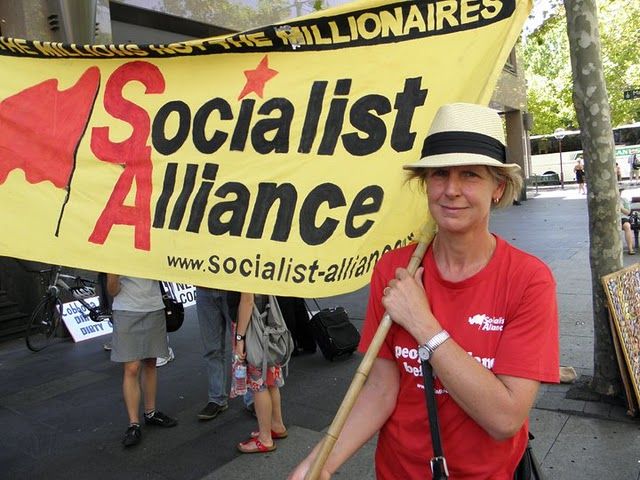
At a packed Leichhardt Town Hall candidates meeting on February 7, education minister Verity Firth all but conceded that the Labor state government would not be returned on March 26.
Firth said she was looking forward to rebuilding the ALP from the opposition benches. She was unconvincing.
Firth told the meeting she joined the ALP when she was a 15-year-old idealist. “Genuine lasting change is about more than slogans,” she said.
“When you’re in government you cannot just issue a press release or organise a protest rally ... because governing is far more complex.”
But at a time of unprecedented community organising around issues such as rezoning public buildings for private use, plans to build more roads, tollways and coalmines, and the prospect of coal seam gas mining in suburban Sydney, Firth’s comments are very patronising.
A group of concerned parents from Gosford, who explained that the education minister had rezoned Gosford Public School on the last day of the school year in 2010, was given short shrift by Firth. “We’re building you a brand new school!” she exclaimed.
This is not what most members of the Gosford school community want, the residents told the meeting. The new rezoning rules mean that schools, churches, hospitals and other public sites can be rezoned for residential — or rather developer — use.
The parents explained that all they wanted was for their school to stay as it is. They did not want to be relocated to a “brand new school” within 100 metres of an electricity substation, a methadone clinic and a sexual health clinic — although they explained they were not against these services.
The ALP’s new rezoning rules will be a bonanza for its developer mates.
The Sydney Morning Herald said on January 31: “In the city of Sydney alone more than 120 sites protected as ‘public purpose’ or ‘special use’ will be rezoned for low-density or general housing under the draft Sydney local environment plan.”
The paper also said: “About 50 sites in the Marrickville council area protected for community or educational facilities will be rezoned for low-, medium- or high-density residential development.”
But Firth scolded the Gosford residents. They should blame the local council — in which the ALP is not a majority — for selling off the school’s playing field, she said.

This exchange — in front of about 150 people — underscored the ALP’s arrogance.
Firth said she would make a great member of the ALP “opposition”, but the fact is there will be no real opposition when Labor is trounced at the elections.
Oppositions require a set of policies and values that are different to the ruling party. In NSW, the ALP and the Liberal-National Coalition are virtually indistinguishable in their subservience to the corporate elites.
This is why some traditional ALP voters (with amnesia) will “punish” it by voting for the Coalition. Others will vote for the Greens due to its much more progressive social and environmental policies. And some, who agree that real social change has to come from a complete overhaul of the system, will vote for the Socialist Alliance.
The NSW Greens need thousands more primary votes to have a chance to win the seats of Balmain and Marrickville.
The Greens’ chances will improve if the Liberals preference them, but that seems increasingly unlikely.
At the forum, Greens candidate for Balmain Jamie Parker said he thought it best for the Greens to not distribute preferences. Firth reiterated her “personal view” that Labor should preference the Greens, not the Liberals.
Labor deserves to get the boot, but the Liberal-National Coalition is no alternative. It will slash and privatise community services even more ferociously than Labor has.
That’s why, in the coming NSW election, the Socialist Alliance wants to focus on building a real opposition to both pro-corporate parties. This opposition must go beyond parliament and become a strong grassroots opposition to defend our services and rights.
We need an opposition capable of standing up to the powerful vested interests — an opposition that can mobilise in the streets, in the communities and the trade unions.
To make lasting change, this opposition will have to develop enough to grow new institutions of effective and direct democracy, such as the right to recall our political representatives, the right to community-initiated referendums on important issues, and the formation of community assemblies to give communities a real say.
If you agree, you should support parties like the Socialist Alliance and the Greens, which have stood up against the selfish and socially and environmentally destructive corporate elites and are keen to mobilise people to take charge of our collective future.
[Pip Hinman is the Socialist Alliance candidate for Marrickville in the NSW state elections.]